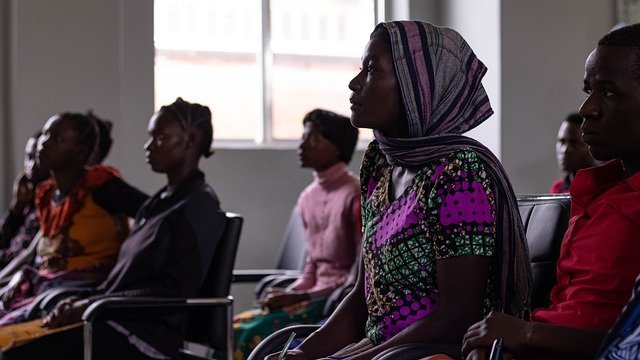By Ebenezer Immanuel Obeng-Akrofi
Every year, the 12th of August marks International Youth Day, a day to reflect and bring attention to the problems faced by the youth.
Globally, young people continue to be underrepresented or completely side-lined when it comes to democracy and governance. As a young person and an ardent believer in the capacity of the youth, especially women, to contribute to democracy building, there is no better time than now to share my perspective on the long-standing discourse on gender quotas. I acknowledge that my submission does not sufficiently exhaust the issue under consideration but will further reinforce the need to press on.
Gender quotas are a very popular but yet controversial tool used as a means for realizing an effective democracy-building process. However, to properly appreciate quotas, it is important to understand their purpose.
A fundamental purpose of gender quotas is that it places the responsibility for the election of women into positions of power on political parties. This helps address the representation gap or the overrepresentation of men in positions of power, leadership and decision-making. Therefore, when parties are undergoing their internal party processes on the identification, nomination and selection of candidates they need to have enabling processes and procedures because political parties are the gatekeepers and they determine who gets into positions of power.
For this purpose to be achieved, there is an urgent need to raise the level of awareness and recognition of gender equality as a fundamental human right which is crosscutting in all the processes of democracy building. This is important because, quotas whether reserved, voluntary or legislative helps open the spaces for women to be able to enter into the decision making spaces just as much as men.
The issue around the controversy of gender quotas has to do with the assumption and perception that by having the quotas, incompetent women are being brought into leadership or positions of power. This is a tragic perception that continues to be communicated. If we are to give a reason to why men have been able to attain and access to positions of power and decision making, it is because they have learned to be leaders-have had opportunities to be leaders and learned by doing and acquired the experience.
Sadly, these opportunities are not readily available to women. Quotas therefore in their totality are not discriminatory or a zero-some game but are rather a channel to ensure both men and women can have opportunities to access the spaces of power, leadership and decision making.
Nonetheless, the disadvantage of gender quotas is when they are used as a token mechanism or window dressing mechanism which leads to backlash. Yet, even this backlash is mostly contradictory because we find that the level of demand for accountability and excellent performance from women is not demanded from male leaders.
If we look at the global state of democracy, and if the same standards of accountability and transparency are demanded of leadership in general, democratic institutions and processes would be more robust, sustainable and effective. Ultimately, the biggest backlash is seen when quotas are not implemented in line with the original purpose for which they were designed. Because even in the case where the nomination and allocation of seats and positions are done with favouritism or the process is manipulated, it ends up defeating the original purpose which is to fill those positions with women with the requisite capacity.
In conclusion, to ensure that gender quotas become an effective tool for inclusive democracy building, there is a need to re-examine how they align with the political system and the broader context, as well as the legislative framework within which they operate.



